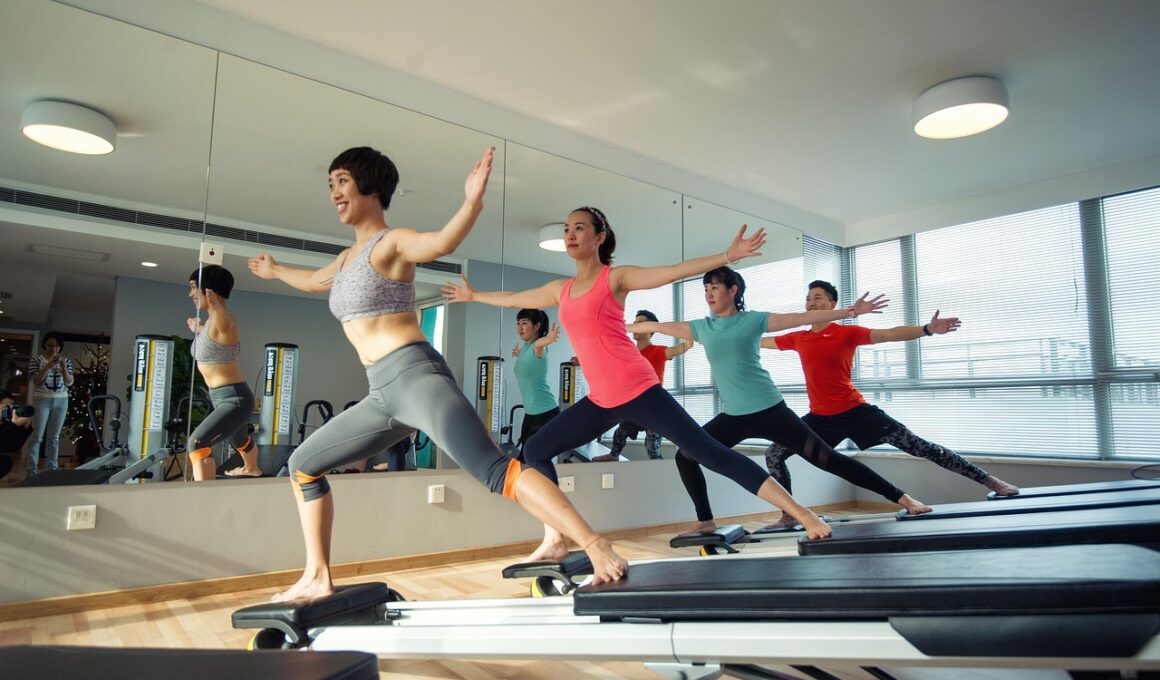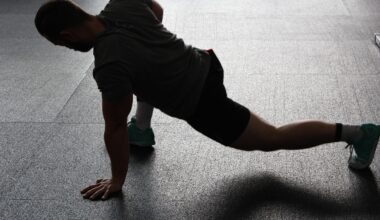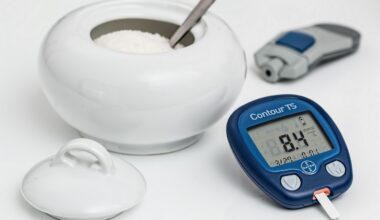Pilates for Enhancing Mental Health and Reducing Stress in Older Adults
Pilates has rapidly gained popularity among older adults as a tool for enhancing mental health and managing stress. This low-impact exercise regime focuses on core strength, flexibility, and posture, making it particularly beneficial for aging individuals. One key aspect of Pilates is its emphasis on mindful movement, which encourages participants to stay present during their practice. This attentiveness can lead to reduced anxiety and improved mental clarity. Additionally, Pilates promotes a sense of community among older adults, which can combat feelings of isolation and loneliness. Research suggests that regular physical activity, such as Pilates, releases endorphins, the body’s natural mood elevators. These endorphins create a sense of well-being and happiness, especially for older adults who might be experiencing stress related to health issues. Furthermore, mindful breathing, a cornerstone of Pilates, aids in relaxation and stress reduction. By focusing on breathing, participants can create a calming experience conducive to mental well-being. Ultimately, incorporating Pilates into a regular fitness routine can serve as a highly effective way for seniors to enhance both their physical fitness and mental health.
This practice can effectively reduce feelings of stress and anxiety.
Many older adults experience stress from various life changes, including retirement, health problems, and the loss of loved ones. Pilates offers a structured approach to manage these feelings while promoting overall well-being. In Pilates classes, participants engage in controlled movements designed to improve body awareness and physical strength. Increased body awareness helps individuals recognize tension in their bodies and manage it through relaxation techniques. As older adults become more attuned to their physical state, they often find that they can better cope with emotional stressors. Classes typically focus on group settings, allowing older adults to socialize and establish connections with their peers. This social interaction can further alleviate symptoms of stress and promote a sense of belonging. Additional benefits of Pilates include improved balance and coordination, which tend to decline with age. Enhancing these physical attributes can contribute to increased confidence and a greater sense of autonomy among elderly individuals. When older adults feel stronger and more capable, they are less likely to succumb to feelings of stress and anxiety.
Mindfulness and Its Impact
Practicing mindfulness within Pilates can greatly contribute to stress management. Mindfulness encourages individuals to focus on the present moment without judgment. By integrating this concept into Pilates, participants learn to connect their movements with their breath. This connection fosters a state of tranquility, enabling individuals to experience moments of clarity amid life’s complexities. As stress levels decrease, mental health improves remarkably. Mindfulness in physical activities like Pilates has profound benefits for older adults. Improvements in self-esteem, reduced emotional distress, and enhanced mood are just a few positive outcomes linked to mindfulness practices. Another crucial benefit of Pilates is its adaptability to different fitness levels. The exercises can be modified based on individual needs and limitations, making it accessible for virtually all seniors. This flexibility ensures that participants can practice safely and confidently while focusing on their mental health as much as their physical health. Pilates does not have to be an exhaustive workout; it can be approached gently, creating an experience that remains enjoyable yet purposeful. Engaging regularly in such mindful movements provides older adults with a practical tool for managing stress.
Building a supportive network is essential for improving mental health.
Instructors are trained to create a welcoming environment where older adults feel empowered to express their feelings and challenges. Such atmospheres promote communication, allowing participants to share their experiences and gain insights from one another. This sharing can alleviate feelings of isolation, which can be particularly challenging for seniors. The incorporation of breathing exercises into Pilates routines serves as another powerful method for stress relief. Breathing techniques promote relaxation, enhance lung capacity, and provide a natural means of reducing heart rates during physical exertion. Older adults can take these techniques beyond Pilates, using them throughout their daily lives when faced with moments of stress. Consistent practice may contribute to developing better coping mechanisms over time. As seniors continue to nurture their ability to control stress, their overall well-being improves. Improved mental health positively impacts relationships, bolstering connections with family, friends, and community. Ultimately, the unique blend of physical movement and social interaction in Pilates creates a holistic approach to enhancing mental health. By focusing on both body and mind, older adults can achieve a higher quality of life.
Setting Realistic Goals in Pilates
Establishing realistic goals can further enhance the benefits of Pilates for older adults. Goals provide direction and motivation, encouraging individuals to commit to regular exercise. When participants set achievable objectives, such as improving flexibility or reducing daily stress, they experience a sense of accomplishment. This feeling is vital for maintaining motivation, especially when faced with challenging situations or physical limitations. Instructors can help guide older adults in identifying these goals, tailoring exercises to match their capabilities and interests. For example, some participants may aim to enhance their core strength, while others may focus on improving balance. The journey through Pilates should be a positive one that emphasizes personal growth rather than competition. Additionally, Pilates sessions can incorporate group discussions about progress, allowing participants to share their successes and challenges. This practice fosters accountability within the group dynamic, further encouraging clients to remain committed to their mental health and fitness journeys. Older adults can conduct self-reflections on their practices, which helps them identify emotional and physical barriers that may impede progress. By acknowledging these challenges, seniors are better equipped to navigate them.
Regular assessments of these goals can ensure progress continues.
Peer support will create more accountability, significantly impacting mental well-being positively. As feelings of accomplishment accumulate, older adults develop a more profound sense of resilience and adaptability. Pilates instruction can also blend mindfulness techniques like visualization. This addition allows participants to imagine themselves overcoming obstacles while practicing movements effectively. Visualization enables older adults to mentally prepare for challenges they may encounter outside class environments. By nurturing a positive mindset, individuals are more equipped to tackle stressors and enjoy their lives fully. Moreover, engaging with certified instructors familiar with older adult needs ensures a safe and beneficial experience. These instructors can provide valuable insights, modifications, and encouragement. This guidance fosters a supportive environment that enhances the overall Pilates experience. Encouragement and social interaction further reinforce the connection between physical fitness and mental health. Regular attendance in Pilates classes allows older adults to cultivate friendships and support networks, essential for maintaining emotional wellness. As they grow their communities, participants often find greater solace in shared experiences and the relatable challenges associated with aging.
Conclusion: Embracing Pilates for Stress Management
The benefits of Pilates for stress management and mental health enhancement are particularly valuable for older adults. Engaging in regular Pilates practice can significantly alleviate feelings of anxiety and promote emotional well-being through individual growth and community support. The mindful movement facilitated by Pilates encourages participants to gain awareness of their bodies, ultimately improving their emotional resilience. Older adults who embrace Pilates can develop strong coping strategies amid life transitions, contributing to an overall sense of peace and satisfaction. By integrating Pilates into their daily lives, individuals can create a balanced routine that nurtures both physical fitness and mental health. Positive interactions within the Pilates community are vital for fostering feelings of connection and belonging, providing crucial support as seniors navigate the complexities of aging. The journey toward enhanced mental health involves a multifaceted approach, including physical activity, mindfulness, socialization, and goal setting. Adults can cultivate a vibrant and fulfilling life experience through Pilates, reaping emotional benefits alongside physical conditioning. Ultimately, Pilates is more than just a workout; it is a holistic lifestyle choice that significantly benefits older adults.
By cultivating a sense of belonging through movement, older adults may find improved overall well-being and joy.


